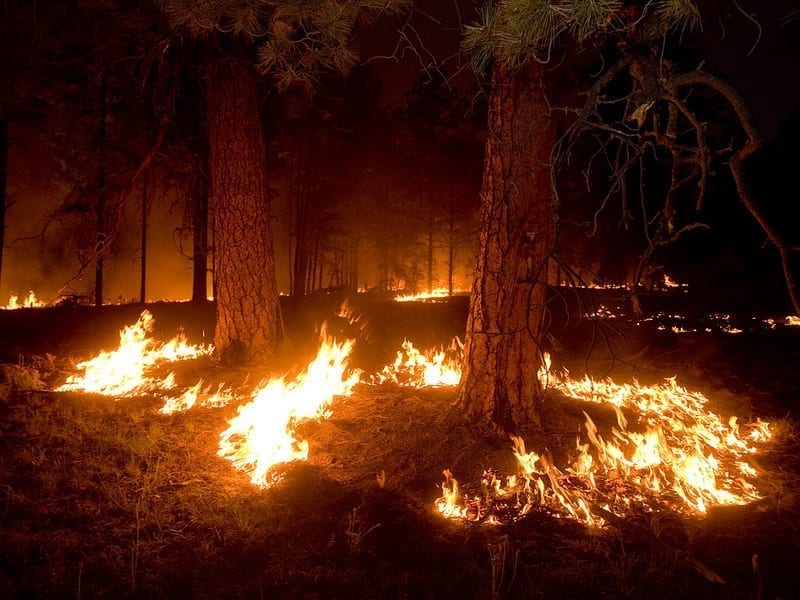Last week the House Committee on Natural Resources Subcommittee on Federal Lands heard testimony from four expert witnesses regarding ways that Congress could shape policy for our national forests. If you don’t watch Congressional subcommittee meetings on YouTube for fun, you’re missing out on seeing the sausage grinder of law formation in action.
Last week the House Committee on Natural Resources Subcommittee on Federal Lands heard testimony from four expert witnesses regarding ways that Congress could shape policy for our national forests. If you don’t watch Congressional subcommittee meetings on YouTube for fun, you’re missing out on seeing the sausage grinder of law formation in action. This one was also a barely disguised opportunity for legislators on both sides of the aisle to inject their party’s positions into leading questions for the witnesses. Democrats concentrated on issues of science and climate change. Republicans steered the discussion to issues of jobs for rural communities and the need to provide regular deliveries of trees to lumber mills. Their constant push to allow logging as the go-to method of forest fire prevention could leave an observer wondering, would forests die without businesses to care for them?
Oversight Hearing on Burdensome Litigation and Federal Bureaucratic Roadblocks to Manage our Nation’s Overgrown, Fire-Prone National Forests. Posted by the House Committee on Natural Resources, Subcommittee on Federal Lands.
Numerous stakeholders have an interest in the wellbeing of our national forests. As a child and a young man, Teddy Roosevelt went west to find health and solace in grief and was moved to set aside wild lands for all Americans to enjoy. Today, people need the forests for hiking and camping as well as jobs and consumer products derived from exploiting our natural resource base. However, these interests must be balanced with those of non-humans in the ecosystem and the need to sequester carbon and clean the air. It does us no good to have lumber for building more houses if we’re destroying our ability to live in a stable climate in order to provide it. Today’s “conservatives” seem to have forgotten the root of their ideology is the “conservation” that Roosevelt held so closely to his heart.
Legislation and advocacy groups are often named contrarily to their true purpose (I’m looking at you, American Family Association and Internet Freedom Act). Calling the meeting a “Hearing on Burdensome Litigation and Federal Bureaucratic Roadblocks to Manage our Nation’s Overgrown, Fire-Prone National Forests” is no different. It tells you straightaway about the majority party’s agenda. Republicans on the committee constantly hammered on “frivolous litigation” brought by “ideologically extreme” environmental groups, who merely sought to get rich by charging taxpayers hundreds of dollars an hour to merely delay the process of “responsible forest management.” Continuing the overwrought tone, leading questions suggested that the best way to prevent every ill, from forest fires to the demise of the spotted owl, was to allow heavy logging in our national forests. Would forests die without businesses willing to take responsibility for the burdensome logging? House Republicans apparently think so.
On the other hand, a policy of minimal management combined with matter-of-course fire suppression is also untenable. Forest fires endanger human interests and are seen as inherently destructive, but in the natural world, regular burns are part of a cycle that some forests really need. Periodic fires clear out choking underbrush, clear new areas that can be colonized by young growth or newly arrived species in succession, provide minerals that build soil in the long term, disrupt the life cycles of diseases and pests, and some trees depend on fire for seed production or germination. Logging to prevent fires doesn’t help in the same way. Mature, prime trees taken for timber are often the ones most resistant to fire and able to repopulate the area afterward. Taking these is like “improving” the deer population by hunting the biggest and strongest animals, instead of culling the weak or sick, as other predators do.
Forest fires are a problem mostly because the human population has exploded and began living a sedentary life in or near forests, while the growing population relies on timber and other forest products more than is wise. Even so, that doesn’t mean that all environmentalists demand complete withdrawal of human interests from national forests. This is a straw man built by the committee Republicans. The problem is as complex as human civilization itself. However, when Republicans make the case that we need to allow businesses to clean out the forests even if doing so provides no revenue to the public coffers in exchange, they are using the dangers of fire and climate change in order to provide giveaways to business interests. Not only is this bold-faced hypocrisy, it shows a lack of imagination and knowledge in the face of crisis.
Would forests die without businesses? No, but Republican re-election campaign treasuries might.
Related: California’s Dead Trees are a Harbinger


Join the conversation!